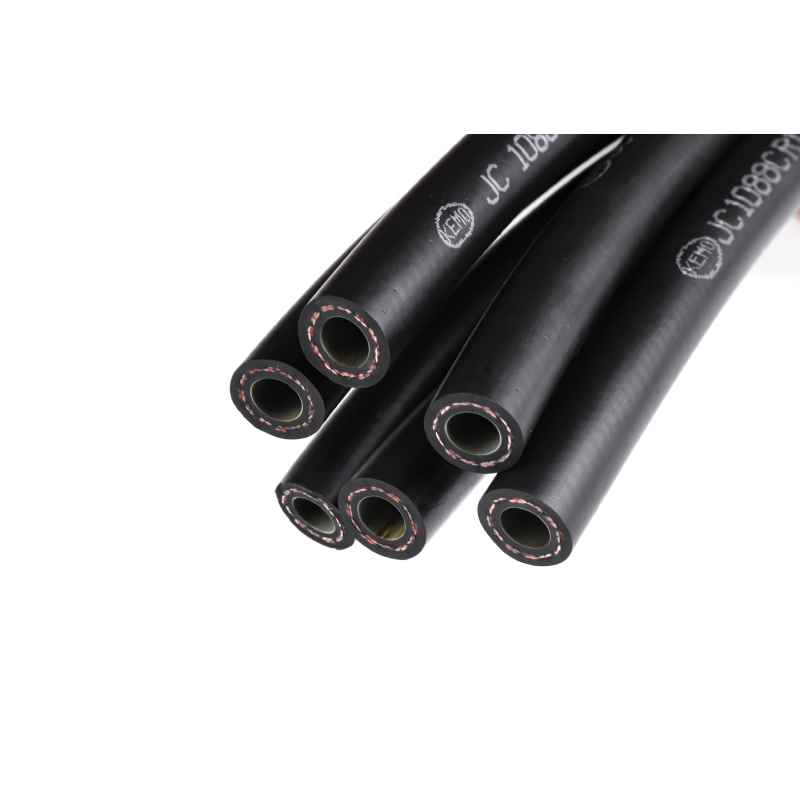Optimal Power Steering Pump Pressure Hose Selection for Enhanced Vehicle Performance and Safety
Aug . 10, 2024 19:40 Back to list
Optimal Power Steering Pump Pressure Hose Selection for Enhanced Vehicle Performance and Safety
Understanding Power Steering Pump Pressure Hose Importance and Maintenance
Power steering systems are essential components of modern vehicles, providing drivers with the ability to steer with minimal effort. One of the critical elements of this system is the power steering pump pressure hose. This hose plays a pivotal role in maintaining the system's functionality and ensuring smooth steering. In this article, we’ll explore the importance of the power steering pump pressure hose, its functions, potential issues, and maintenance tips to ensure optimal performance.
What is a Power Steering Pump Pressure Hose?
The power steering pump pressure hose is a high-pressure line that connects the power steering pump to the steering gear or rack. The primary function of this hose is to transport hydraulic fluid under pressure from the pump to the steering mechanism. This hydraulic fluid amplifies the force exerted by the driver, allowing for easy steering movement. The efficiency of the power steering system heavily relies on the integrity and condition of this hose.
Importance of the Power Steering Pump Pressure Hose
1. Hydraulic Fluid Transport The primary role of the power steering pump pressure hose is to convey hydraulic fluid at high pressure. Without this effective transport, the system would fail, leading to increased steering effort and possible loss of control.
2. System Integrity A well-functioning pressure hose ensures that the steering system maintains the necessary hydraulic pressure. Any compromise in the hose can lead to fluid leaks, causing a drop in pressure and impacting steering responsiveness.
3. Safety and Performance The power steering system directly influences driver safety. A compromised pressure hose can result in sudden steering failure, posing significant risks while driving. Maintaining this component ensures the vehicle responds accurately to driver inputs, enhancing overall safety.
Common Issues with Power Steering Pressure Hoses
Power steering pump pressure hoses can develop several issues over time, primarily due to wear and tear, exposure to heat, or improper installation
. Here are some common problems1. Leaks One of the most typical issues is leaking fluid. This can occur due to cracks, wear, or corrosion in the hose. A leak can lead to a significant drop in fluid levels, causing the steering system to become less effective.
power steering pump pressure hose

2. Kinks and Bends If the hose is bent or kinked, it may restrict fluid flow. This restriction can create pressure build-up or uneven distribution, resulting in delayed or stiff steering responses.
3. Deterioration Over time, the rubber or synthetic materials of the hose can deteriorate, leading to weaknesses that might result in ruptures or leaks. Factors such as heat, road debris, and exposure to chemicals can expedite this deterioration.
Maintenance Tips
To ensure the longevity and functionality of the power steering pump pressure hose, consider the following maintenance tips
1. Regular Inspections Periodically check the hose for signs of wear, such as cracks, bulges, or leaks. Early detection can prevent more serious issues down the line.
2. Fluid Checks Monitor the power steering fluid levels and the condition of the fluid. Contaminated or old fluid can impact the effectiveness of the steering system.
3. Professional Servicing If you notice any irregularities in the steering response, it’s vital to consult a professional mechanic. They can assess the condition of the pressure hose and recommend replacements if necessary.
4. Proper Installation If you’re replacing the hose, ensure it’s installed correctly to prevent future issues. Use high-quality replacement parts to guarantee compatibility and durability.
Conclusion
The power steering pump pressure hose is indispensable in ensuring the efficiency and safety of a vehicle’s steering system. Understanding its role, potential issues, and maintenance practices can help car owners preserve their vehicle's performance and longevity. Investing time in regular inspections and timely repairs will lead to safer driving experiences and a well-maintained vehicle overall.
